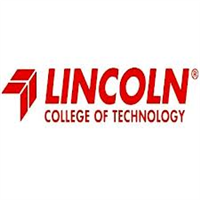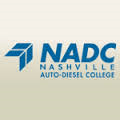What do they do?
Diagnose, adjust, repair, or overhaul buses and trucks, or maintain and repair any type of diesel engines. Includes mechanics working primarily with automobile or marine diesel engines.
Also known as:
Bus Mechanic, Diesel Mechanic, Diesel Technician (Diesel Tech), Diesel Truck Mechanic, Fleet Mechanic, General Repair Mechanic, Heavy Truck Mechanic, Motor Coach Mechanic, School Bus Mechanic, Service Technician, Trailer Mechanic, Transit Mechanic, Transportation Mechanic, Truck Engine Technician, Truck Mechanic
-
0.6%
Change
Ranks #53 in job growth rate1,130Job Openings
Ranks #8 in net job growth
Looking for colleges that offer a specific major? Use the College Match Tool to find your best-matched schools and discover your estimated Net Price!
- High school diploma equivalent (47%)
- Some college, no degree (23%)
- Associate's degree (14%)
- Less than high school diploma (13%)
- Bachelor's degree (3%)
- Master's degree (<1%)
- Doctorate or Professional Degree (<1%)
People in this career often have these skills:
- Troubleshooting - Determining causes of operating errors and deciding what to do about it.
- Repairing - Repairing machines or systems using the needed tools.
- Operations Monitoring - Watching gauges, dials, or other indicators to make sure a machine is working properly.
- Equipment Maintenance - Performing routine maintenance on equipment and determining when and what kind of maintenance is needed.
People in this career often know a lot about:
- Mechanical - Knowledge of machines and tools, including their designs, uses, repair, and maintenance.
- Transportation - Knowledge of principles and methods for moving people or goods by air, rail, sea, or road, including the relative costs and benefits.
- Education and Training - Knowledge of principles and methods for curriculum and training design, teaching and instruction for individuals and groups, and the measurement of training effects.
- English Language - Knowledge of the structure and content of the English language including the meaning and spelling of words, rules of composition, and grammar.
- Public Safety and Security - Knowledge of relevant equipment, policies, procedures, and strategies to promote effective local, state, or national security operations for the protection of people, data, property, and institutions.
People in this career often have talent in:
- Near Vision - The ability to see details at close range (within a few feet of the observer).
- Arm-Hand Steadiness - The ability to keep your hand and arm steady while moving your arm or while holding your arm and hand in one position.
- Manual Dexterity - The ability to quickly move your hand, your hand together with your arm, or your two hands to grasp, manipulate, or assemble objects.
- Finger Dexterity - The ability to make precisely coordinated movements of the fingers of one or both hands to grasp, manipulate, or assemble very small objects.
- Control Precision - The ability to quickly and repeatedly adjust the controls of a machine or a vehicle to exact positions.
- Hearing Sensitivity - The ability to detect or tell the differences between sounds that vary in pitch and loudness.
- Problem Sensitivity - The ability to tell when something is wrong or is likely to go wrong. It does not involve solving the problem, only recognizing that there is a problem.
- Deductive Reasoning - The ability to apply general rules to specific problems to produce answers that make sense.
- Multilimb Coordination - The ability to coordinate two or more limbs (for example, two arms, two legs, or one leg and one arm) while sitting, standing, or lying down. It does not involve performing the activities while the whole body is in motion.
- Extent Flexibility - The ability to bend, stretch, twist, or reach with your body, arms, and/or legs.
- Information Ordering - The ability to arrange things or actions in a certain order or pattern according to a specific rule or set of rules (e.g., patterns of numbers, letters, words, pictures, mathematical operations).
- Trunk Strength - The ability to use your abdominal and lower back muscles to support part of the body repeatedly or continuously over time without "giving out" or fatiguing.
People in this career often do these activities:
- Select tools, equipment, or technologies for use in operations or projects.
- Inspect mechanical components of vehicles to identify problems.
- Operate cranes, hoists, or other moving or lifting equipment.
- Adjust vehicle components according to specifications.
- Test mechanical equipment to ensure proper functioning.
- Lubricate equipment to allow proper functioning.
- Service vehicles to maintain functionality.
- Adjust equipment to ensure optimal performance.
- Observe equipment in operation to detect potential problems.
- Rewire electrical or electronic systems.
- Operate transportation equipment to demonstrate function or malfunction.
- Troubleshoot equipment or systems operation problems.
- Repair non-engine automotive or vehicle components.
- Measure distances or dimensions.
- Dismantle heavy equipment or machinery.
- Repair defective engines or engine components.
- Service green vehicles to make repairs or maintain good working order.
- Measure equipment outputs.
- Monitor resources.
- Replace worn, damaged, or defective mechanical parts.
- Rebuild parts or components.
- Install vehicle parts or accessories.
- Repair tires.
- Align equipment or machinery.
- Grind parts to required dimensions.
This page includes data from:

 Occupation statistics: USDOL U.S. Bureau of Labor Statistics Occupational Employment Statistics
Occupation statistics: USDOL U.S. Bureau of Labor Statistics Occupational Employment Statistics
 Videos: CareerOneStop, USDOL/ETA and the Minnesota Department of Employment & Economic Development
Videos: CareerOneStop, USDOL/ETA and the Minnesota Department of Employment & Economic Development








